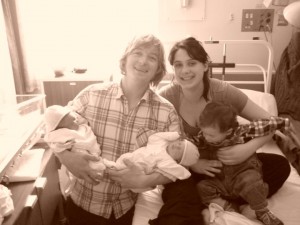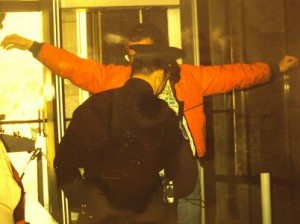Mothers Day, Part III
Although motherhood often overwhelms us, the Lord promises to draw close to the overwhelmed. When we are desperate for wisdom about how to solve a mothering dilemma or get through a crisis, he has promised to be our co-parent. He’s even been our mothering example, despite never having been a mother.
In the New Testament Jesus referred to the 12 disciples as his children and often handled these men exactly as we moms handle our kids. For example:
- Moms must continually repeat things to their kids. Jesus often said, “Don’t you remember?” or “I already told you,” or “Don’t you understand?” It seems these men only listened with half an ear. Sound familiar?
- Moms get frustrated for lack of private time, even in the bathroom. Jesus worked hard to get time alone too, but we read, “Jesus went off to the mountain, and they found him…” or “Jesus got up a long while before dawn, but they searched for him…” or “Soon afterward, Jesus went… and his disciples and a large crowd went with him.” Ring a bell?
- Moms get weary from non-stop serving. Jesus taught, healed, listened, traveled (all on foot), and even washed feet. Sound like bath time?
- Mothers sometimes feel abused by all the touching and bodily hanging-on that children do. People pushed him, chased him, grabbed his clothes and plunked children down on his lap, but he didn’t resist. He even reached out to these same people with healing.
- Moms get frustrated having to spend so much time settling disputes. Jesus refereed bickering between his disciples on dozens of occasions, coping patiently with their arguing: “Who’s the greatest? Who gets to sit by you? Why do you fuss over those children? Why don’t we have anything to eat?”
- Moms hear the word “mommy” hundreds of times a day and sometimes tire of it, since each use of it means fielding a request. Jesus had people shouting requests at him as he walked along, as he entered the temple, as he preached, as he climbed in a boat to leave the crowds: “Jesus, heal me! Jesus, you must come with me! Jesus, just say the word! Jesus, how can I be saved?” He always responded with kindness.
- Moms get exasperated answering kids’ questions over and over. Jesus used every question as a teachable moment, turning it back on them by asking his own questions.
- Mothers get irritated at continually being interrupted. Jesus’ entire ministry was an endless string of interruptions. We read, “He was on the way, when…”
- Moms can hold grudges. Jesus always forgave.
So Jesus was, indeed, a wonderful mothering example, even referring to himself as like a mother hen gathering her chicks around her.
“But,” we say, “he was flawless, and we’re not!”
We know we can’t be perfect mothers, but there are a million ways to be good ones, and striving toward Jesus’ example is a great place to start.
We do get credit for one parenting characteristic we have in common with Jesus, however. He and we would lay down our lives for our children. The only difference is, he actually did.
“We know what real love is because Jesus gave up his life for us. So we also ought to give up our lives for our brothers and sisters [and children].” (1 John 3:16)






